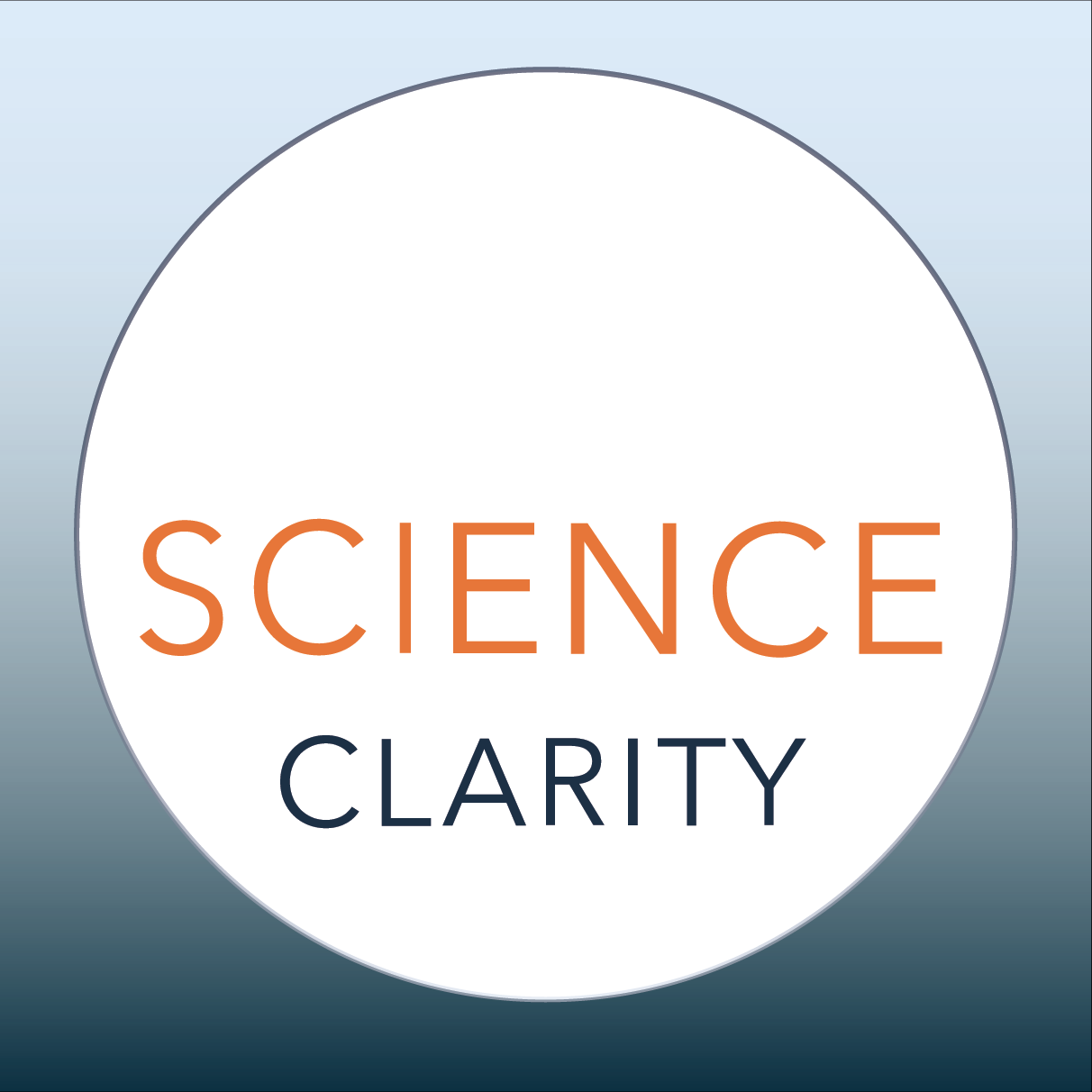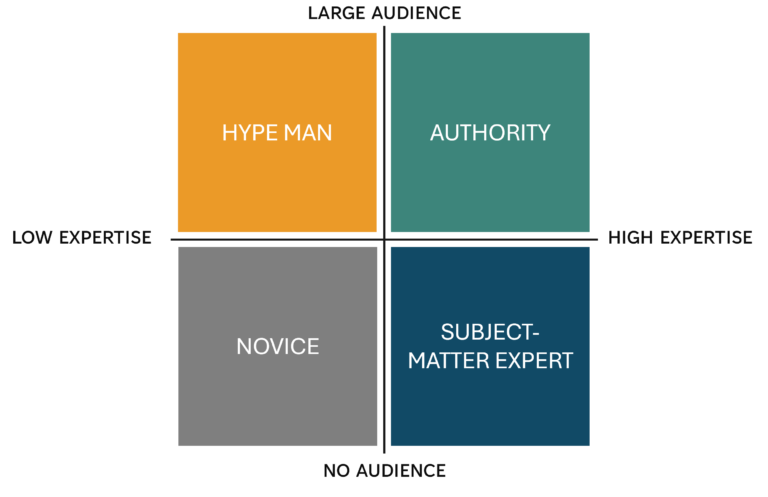Scientists spend years training, practicing, and honing their technical skills. Through hard work and dedication, they earn the subject-matter expert (SME) designation. SMEs have a deep level of knowledge and often solve problems no one else can.
Some SMEs go even further to become authorities.
What’s the difference between a subject-matter expert and an authority?
Both SMEs and authorities are very important and accomplished scientists. But being an SME doesn’t automatically qualify one to be an authority.
An authority is someone who can solve complex problems and is adept at interpreting and conveying their knowledge in a way that resonates with people who don’t have the same level of understanding.
Authorities find and express the core of an idea; they extract simplicity from chaos and noise. They can strip an idea to its most critical essence and explain it in a way that people can easily understand. (Read more about simplicity here.)
In other words, an authority is an SME who has an audience.
Experts like to think of themselves as authorities; many are not.
Some experts believe that their knowledge is so profound that it will naturally be understood. It will not.
Others worry that making their ideas more accessible will diminish their credibility. However, the opposite is true: When SMEs engage their audience, they earn the credibility to be the authority. In fact, the most trusted authorities are those who can distill complex concepts in clear and engaging ways.
Think about popular scientists like Stephen Hawking, Jane Goodall, or late-night TV darling Neil deGrasse Tyson. Certainly, they are all SMEs in their own fields but hardly the only ones. Why do we know enough about these scientists for them to make it into this newsletter? Because we understand what they say!
If “regular” people want to know something about astrophysics, Neil deGrasse Tyson has demonstrated repeatedly that he could explain it to us. This is how he became a go-to astrophysicist rather than the hundreds of others who have equivalent technical expertise.
So you want to be a go-to authority?
To be sure, not every SME wants or needs to be an authority. SMEs are wonderful just as they are.
But if you want to become an authority, you must learn to demonstrate what you know in a relatable way.
Although you may not become as well known as Hawking, Goodall, or Tyson, you can become a go-to authority in your field and make a bigger impact in your world. Here’s how to do it:
Know your audience and what they care about. Hint: It’s probably not the nitty-gritty details. Remember, the goal is not just to share your knowledge but to inspire and educate others. Your job is to be the interpreter of the technical nuances, putting them into the audience’s preferred language.
When you do this, you give them information that is relevant and interesting, making you a valued resource.
Develop your scientific storytelling skills. Stories make abstract concepts more concrete and relatable, especially if the story relates the new idea to something the audience already knows. Stories make complex ideas accessible and compelling to the listener because humans are wired to follow the familiar journey of call to adventure, transformation, and resolution.
Use plain language whenever possible. If you can say something simply, do it. Technical experts often worry about “dumbing down” important nuances or losing the precision of their message. In reality, simple language improves the clarity of your communication because clarity and precision go together.
Think carefully about whether technical words or jargon are absolutely necessary to use. If so, then use them. But make sure you’re not using jargon just because you always do it that way or you think it has to be done that way.
Seek feedback. Don’t be shy about asking for feedback on your communication. What did the listener hear, and how does that compare with what you intended to convey? The cycle of experimentation and testing is the scientific way, and it works for communications too!
Remember, the journey from expert to authority is a continual one. It’s about the relentless pursuit of technical excellence as well as the ability to translate your expertise in compelling and valuable ways.
What did you think of this newsletter? Let me know!
Work with me
When you’re ready, there are 3 ways I can help you get more attention for your research:
- Coaching for ambitious researchers who want their work to be impressive and memorable
- Team training to help organizations raise the science communication bar
- Speaking to groups introducing good principles of effective science communication


